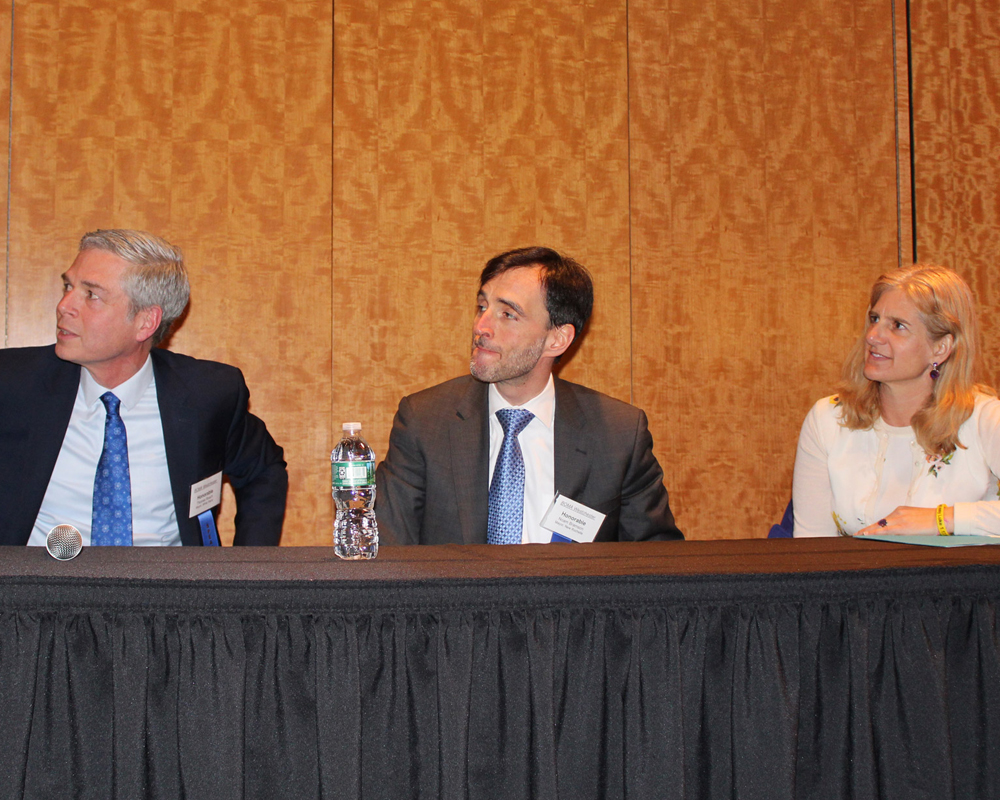Computer science is a hot field. Our scientific and business communities depend on it.
Every day we read stories about innovation in the mainstream and business press on topics like artificial intelligence, deep learning and machine learning. We read about giant companies coming to set up business in town, bringing with them thousands of tech-related jobs. We read about canceled deals and angry politicians.
The constant flurry of information is exciting, but it can also produce anxiety. As computing technologies advance, so do the opportunities for your business ”” including the very real opportunities to be left behind by competitors who adopt and adapt faster or better than you.

Even more alarming are the constant cybersecurity horror stories of attacks on businesses of every size, stories that are rapidly multiplying. We hear all about the growing sophistication and relentless nature of the hackers who perpetrate these attacks. And Amazon”™s pullout from New York City has had a deflating effect on many people in the industry, whether they agreed with the subsidies or not, because losing 25,000 white-collar jobs is a loss that will be felt from Long Island City to New Rochelle.
Media coverage can fuel the fear of being left behind by new technologies, as well as increase our sense of vulnerability to threats like hackers. When our neighbors are appearing in the news from one day to the next, it”™s a very real concern to have.
Articles like the recent ones about the lack of seats available in computer science classes, on foreign powers surpassing the U.S. in powerful technologies like AI and The New York Times piece on how women became so undervalued in a software development industry that they did so much to build are forwarded myriad times by well-intentioned colleagues whenever they run. I receive these with a note that is usually a variation on the question: what are you going to do about it?
So what I am going to do about it is this: my colleagues and I will continue to educate and train the technology workforce of 2025 and the executive tech workforce of 2040. Along the way, we also educate the founders who will drive the emerging Westchester start-up scene, who will conduct the research at the proposed Westchester Biotech hub and who will take the burgeoning number of technology jobs in this area that have been difficult to fill.
While seats at some of the country”™s large public universities may be tough to come by, we have seats in our computer science classes at Pace University. Some of these classes are for career changers or those looking to brush up on their skills in order to keep up with the constantly developing tech environment in which they work.
Many topics like AI, machine learning, cybersecurity, bioinformatics, robotics and data analytics are increasingly foundation knowledge in every industry and are going to be needed for executives, managers and line workers as well. If that sounds far-fetched, New York Presbyterian Hospital recently created an introductory course on artificial intelligence for its employees. It ran out of spaces.
Building awareness among the workforce is key to maintaining Westchester”™s reputation as a center for science-driven business. The Regenerons of our area and the next generation of life science businesses that will move and be founded here will need a technologically sophisticated workforce.
To attract and keep these new businesses here, we need to fill our computer science (and other STEM disciplines) classrooms with smart, ambitious people who will not only be aware, but will want to own these technology processes and take them to the next level. White Plains Hospital is developing a new innovation and accelerator initiative to develop the technologies they need to best serve their patients ”” while identifying and developing entrepreneurial talent in the health care technology space.
Jonathan H. Hill is the dean of Pace University”™s Seidenberg School of Computer Science and Information Systems. He can be reached at jhill@pace.edu.





















Very good response to “What will you do about it?” Great article Jonathan.
I couldn’t agree more (the need to protect business interests). But, I would like to flip the coin around as well and emphasize the seriousness of cyber crimes performed by big business against everyday citizens. Corrupting files, accessing cloud services, tearing through personal emails and deleting evidence, accessing location and stalking: none of this is terribly difficult for trained professionals. ‘Here, sign my electronic contract,’ can turn into a life-long nightmare of file corruption.
What is more, it is our future as a cyber culture. That war is waged in the legal system but not to protect ordinary citizens…corporations, yes (thus proving corporations have more rights than people).
The new cyber criminal war is waged by law firms too…law firms retain cyber forensic detectives and cyber crime lawyers on staff (for exorbitant prices), but that is not all. Law, as a discipline, are often now becoming cyber criminals too. Legal espionage in the cyber domain is now the new normal. Unfortunately, law firms representing big business are often to blame, committing crimes against ordinary citizens (when their clients do not want to make an amends for their crimes). This is white-collar crime that is not being addressed and never could. This conversation is above the pay grade of your average officer of the law.
Our government is not just complacent but complicit with crimes against ordinary citizens (particularly in highly political matters). As partial evidence, there are no public resources for cyber forensic detectives for ordinary citizens, even for people who have been harassed and threatened. While business interests are important to balance, history shows that government is the liaison (bribed or intimidated) on behalf of big business. While privacy may be a thing of the past, we must make space (budget) for privacy rights of all citizens. It’s time to hold white-collar crime accountable for their crimes against the people, not just fund programs for private forensics. We must have cyber forensics today. If our government has nothing to hide (no cyber crimes against the people), why isn’t it in the budget?